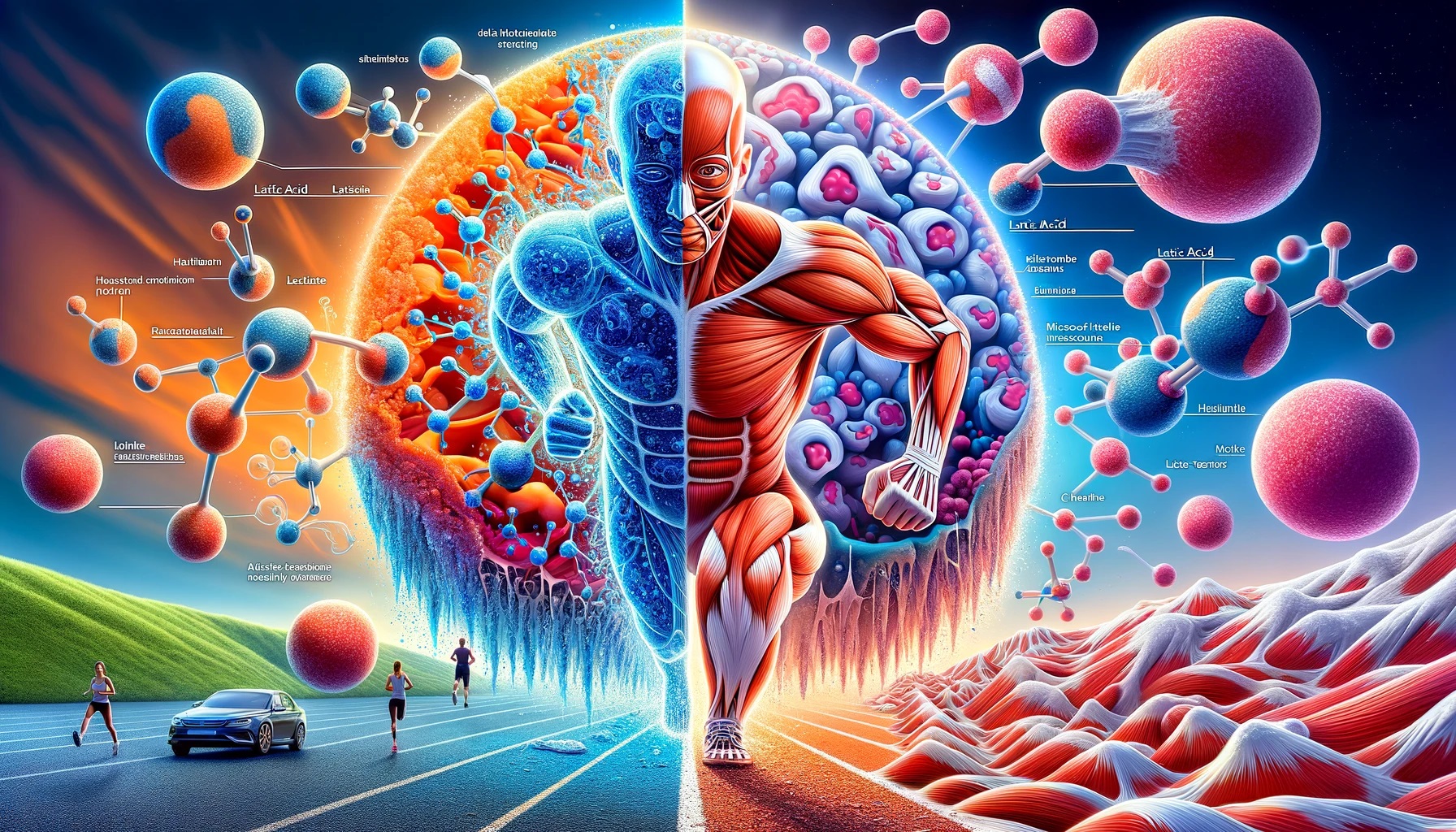· nutrition · 14 min read
The Essential Role of Micronutrients in Human Health
Explore the critical importance of micronutrients in supporting enzyme function, human nutrition, and overall well-being. Unlock the secrets of vitamins and minerals essential for optimal health.

In This Post
The Fact Why Should I Care How To Put In Action Start Tomorrow Guide How does it effect my ability to focus How does it impact my daily life How does it help me make friends How does it help me manage stress How does it effect my mood Summary: Remember Refresher Checklist The Full Research Article CitationsPrint Out The Tomorrow Checklist!
Sign up for our newsletter and receive a copy today, so that, you can start tomorrow! Or the next day, or the day after that. I forget everything and starting things is hard at least for me so these checklists are godsend.
Print Out The Remember Refresher Checklist!
Sign up for our newsletter and download your own copy of the Remember Refresher Checklist, so that, you can easily put it on your fridge and help you stay on target towards your WHY. Every little bit helps.
The Vital Impact of Micronutrients on Well-being
Micronutrients may be tiny in amount but their impact on human health is enormous. Essential nutrients, including both vitamins and minerals, play crucial roles in virtually every function and process within our bodies. From powering our muscle function and maintenance to catalyzing the biochemical reactions needed for life, micronutrients are foundational to our well-being.
Here is a simple fact to ponder: despite their requirement in smaller quantities, a lack of these vital nutrients can lead to significant health problems – highlighting the balanced diet importance. From digestive health issues to nutritional deficiencies affecting energy production and mental well-being, the spectrum of potential impacts proves why maintaining adequate nutritional intake is key.
Overview of Key Micronutrients and Their Functions
Understanding the vast world of micronutrients can seem overwhelming, but it’s easier when we break it down. Here are the superheroes of the micronutrient world along with a checklist of their main functions and benefits:
Vitamins:
- Vitamin A: Key for vision health and immune function.
- Vitamin B Complex: Each B vitamin, from B1 (thiamine) to B12, has unique roles, including supporting energy production mechanisms and nervous system health.
- Vitamin C: Essential for skin health, immune support, and antioxidant protection.
- Vitamin D: Critical for bone health and immune function.
- Vitamin E: An antioxidant that protects cells from damage.
- Vitamin K: Necessary for blood clotting and bone health.
Minerals:
- Calcium: Essential for bone health and muscle function.
- Iron: Crucial for oxygen transport in the blood.
- Zinc: Supports immune function, wound healing, and enzyme reactions.
- Magnesium: Important for muscle and nerve functions, and it acts as an enzyme cofactor in hundreds of biochemical reactions in the body.
- Selenium: Plays a critical role in metabolism and thyroid function.
Ensure adequate Vitamin A for eye and immune health
Get enough B Vitamins for energy and brain function
Don’t forget Vitamin C for skin and immune health
Secure Vitamin D for bones and immune strength
Incorporate Vitamin E for cell protection
Include Vitamin K for blood health
Balance Calcium for bones and muscles
Maintain Iron levels for energy
Boost Zinc for immunity and healing
Prioritize Magnesium for muscle and nerve health
Opt for Selenium for metabolism and thyroid function
Each of these nutrients, although needed only in small amounts, plays irreplaceable roles in our health, supporting everything from metabolic functions to energy production and muscle function and maintenance. The health benefits of zinc and magnesium, for example, showcase the diverse ways in which micronutrients support our body’s enzyme systems and overall well-being.
Understanding and maintaining proper dietary intake of these essential vitamins and minerals is vital for optimal health. The impact of nutrients on overall health cannot be understated, from ensuring the proper function of human enzyme systems to enhancing one’s nutritional status against deficiencies.
The Science Behind Micronutrients
Understanding Micronutrients: Vitamins and Minerals
Micronutrients, consisting primarily of vitamins and minerals, are fundamental for our body to thrive. Although required in small amounts, their impact on our health is vast. Vitamins are organic compounds that our body needs to function properly. They are crucial for energy production mechanisms, guarding against infections, and maintaining our overall health. Minerals, on the other hand, are inorganic elements sourced from soil and water. They are vital for bone health, muscle function and maintenance, and play a role in nerve signaling.
Biochemical Roles of Zinc and Magnesium
Zinc and magnesium stand out within the micronutrient family due to their extensive roles in our health.
Zinc is pivotal in immune system function, DNA synthesis, wound healing, and cellular metabolism. It acts as a catalyst for over 300 enzymes that aid in various biochemical reactions in the body, highlighting the health benefits of zinc in our diet.
Magnesium is another powerhouse, necessary for over 300 biochemical reactions. It contributes to energy production, supports a healthy immune system, maintains normal nerve and muscle function, and makes proteins, bone, and DNA. Its impact on our overall health is significant, emphasizing the importance of maintaining a sufficient dietary intake of magnesium.
How Micronutrients Support Enzyme Systems
Micronutrients, particularly minerals like zinc and magnesium, are essential in supporting enzyme systems. These systems are critical for speeding up chemical reactions in our bodies, from breaking down food during digestion to creating new cells. Without the proper micronutrient levels, our enzyme systems would fail to work efficiently, impacting digestive health and leading to nutritional deficiencies.
- Micronutrients act as enzyme cofactors, meaning they help enzymes to perform their biochemical reactions.
- They play a vital role in metabolic functions, affecting how our bodies use carbohydrates, fats, and proteins.
A simple checklist to ensure that you’re getting enough micronutrients to support enzyme systems includes:
[x] Incorporate a variety of fruits and vegetables into your meals. [x] Choose whole grains over refined grains. [x] Include lean proteins, nuts, and seeds, which are high in zinc and magnesium. [x] Drink plenty of water to help absorb soluble vitamins. [x] Consider supplementation if you are at risk of deficiencies.
By understanding the fundamental roles that micronutrients play in our health, particularly through enzyme support and overall bodily functions, we can appreciate the importance of a balanced diet rich in these essential nutrients. Remember, a deficiency in these tiny but powerful components can have a significant impact on our overall well-being, emphasizing the importance of dietary intake and nutrient absorption for maintaining health.
Micronutrients in Focus
Zinc: A Catalyst for Over 300 Enzymatic Reactions
One of the essential nutrients that play a pivotal role in maintaining human health is zinc. It acts as a catalyst for more than 300 enzymatic reactions essential for numerous metabolic functions. These reactions are vital for DNA synthesis, cell division, protein synthesis, and immune system functionality. Moreover, zinc operates as an enzyme cofactor, assisting in the biochemical reactions instrumental in energy production mechanisms within the body.
Zinc’s importance extends to supporting our body’s digestive health, healing damaged tissues, and ensuring proper functioning of the senses of taste and smell. It’s also critical in maintaining the body’s hormonal balance. Nutritional deficiencies in zinc can lead to a range of health issues, including impaired immune function, hair loss, delayed wound healing, and taste abnormalities.
To harness the health benefits of zinc, incorporating micronutrient-rich foods into one’s diet is essential. Foods high in zinc include:
- Meat (beef, lamb, pork)
- Shellfish (oysters, crab)
- Legumes (chickpeas, lentils, beans)
- Seeds (pumpkin, sesame)
- Nuts (pine nuts, cashews)
- Dairy products
- Eggs
Ensuring sufficient dietary intake of these food sources can help meet the recommended daily allowances (RDAs) for zinc, thus supporting optimal health and wellness.
Magnesium: Essential for Energy Production and Muscle Function
Equally important, magnesium is a mineral that’s critical for over 300 biochemical reactions in the body, including those involved in energy production mechanisms and muscle function and maintenance. It helps convert food into energy, create new proteins from amino acids, and repair DNA. Magnesium also plays a role as an enzyme cofactor, facilitating various biochemical reactions, including those that regulate muscle and nerve function, blood glucose control, and blood pressure regulation.
A deficiency in magnesium can manifest in numerous health problems, such as muscle cramps, fatigue, irritability, and irregular heart rhythms. Thus, ensuring an adequate intake of magnesium is vital for overall health.
Sources of magnesium include:
- Green leafy vegetables (spinach, kale)
- Fruit (figs, avocado, banana)
- Nuts and seeds (almonds, chia seeds)
- Legumes (black beans, lentils)
- Whole grains (brown rice, quinoa)
- Seafood (salmon, mackerel)
Checklist for Incorporating Zinc and Magnesium into Your Diet
[ ] Include a variety of zinc and magnesium-rich foods in your meals and snacks.
[ ] Aim for balanced diet importance to ensure a diverse intake of essential nutrients.
[ ] Consider supplementation if dietary intake may not meet the RDAs for zinc and magnesium.
[ ] Consult with a healthcare professional before starting any supplement regimen, especially if you have underlying health conditions.
By focusing on these micronutrients and ensuring their presence in our daily dietary intake, we can support essential enzyme systems, promote energy production, and maintain muscle function, among other vital metabolic functions. This, in turn, impacts our overall health positively, underscoring the balanced diet importance in our daily lives.
Achieving A Balanced Diet
Sources of Essential Micronutrients
A well-balanced diet is crucial for obtaining the essential micronutrients our bodies need to function optimally. Foods rich in vitamins and minerals play an indispensable role in our overall health, supporting everything from enzyme systems to muscle function and energy production. For a healthy diet, it’s important to consume a variety of nutrient-dense foods.
- Fruits and Vegetables: Rich in vitamins and minerals, they should be a staple in your diet.
- Whole Grains: A good source of B vitamins and minerals like zinc and magnesium.
- Lean Proteins: Including lean meats, dairy, and plant-based proteins like beans and lentils, which provide essential nutrients.
- Nuts and Seeds: High in essential fatty acids, magnesium, zinc, and other micronutrients.
- Dairy: A key source of calcium and vitamin D.
The Impact of Deficiency on Human Health
Nutritional deficiencies can significantly impact health, leading to various issues like weakened immune system, fatigue, and muscle weakness. Specific deficiencies, such as lack of zinc and magnesium, can severely affect metabolic functions, enzyme cofactors, digestive health, and muscle maintenance.
Dietary Recommendations and Supplementation
To ensure you’re getting enough of these vital nutrients, it’s important to follow a balanced diet based on the recommended dietary allowances (RDAs). However, when dietary intake isn’t sufficient, supplementation may be necessary.
- Vitamin D: Essential for calcium absorption and bone health.
- Iron: Important for red blood cell production and energy levels.
- Omega-3 Fatty Acids: Beneficial for heart health and cognitive function.
Here’s a simple checklist to help ensure you’re meeting your nutritional needs:
- Eat a variety of fruits and vegetables every day.
- Include whole grains in most meals.
- Choose lean proteins and incorporate them into your diet.
- Snack on nuts and seeds for added micronutrients.
- If necessary, consider supplementing your diet to fill any nutritional gaps.
Navigating Challenges in Micronutrient Absorption
Nutrient absorption can be influenced by several factors, including age, health status, and even the presence of other nutrients. For instance, vitamin D enhances calcium absorption, whereas excessive intake of zinc can interfere with copper absorption.
To support optimal nutrient absorption:
- Combine Nutrient-Rich Foods: Consuming foods rich in vitamin C can enhance iron absorption from plant sources.
- Pay Attention to Dietary Patterns: Eating a variety of foods throughout the day can help improve overall nutrient absorption.
- Be Mindful of Supplementation: Ensure that supplements are taken as advised to avoid interactions that could impair nutrient absorption.
Achieving a balanced diet requires careful attention to the foods we eat and, when necessary, supplementing our diet to avoid nutritional deficiencies. By understanding the sources of essential micronutrients and how to optimize their absorption, we can support our body’s health and well-being to the fullest.
FAQs on Micronutrients
What are micronutrients and why are they important?
Micronutrients are tiny but mighty substances that your body needs to function properly. These include vitamins and minerals, which are crucial for growth, disease prevention, and overall health. Even though our body requires them in small amounts, their impact on our well-being is significant. They play key roles in biochemical reactions, enzyme support, energy production, and the maintenance of muscle function, making them essential nutrients for staying healthy.
How can I ensure I’m getting enough zinc and magnesium in my diet?
To make sure you’re getting adequate amounts of zinc and magnesium, it’s important to include a variety of micronutrient-rich foods in your daily diet. Here’s a checklist to help you get started:
- Eat plenty of leafy greens like spinach and kale for magnesium.
- Enjoy seeds and nuts, such as pumpkin seeds and almonds, which are high in magnesium.
- Include whole grains in your meals. They’re not only good sources of magnesium but also provide other essential nutrients.
- For zinc, oysters are a top choice, but if you’re not a fan, try beef, poultry, or beans.
- Dairy products can also boost your zinc intake.
By diversifying your food sources, you can naturally increase your intake of these crucial minerals and support your overall health.
What are the signs of micronutrient deficiencies?
The signs of micronutrient deficiencies can vary widely, but there are some common symptoms to lookout for, including:
- Fatigue and weakness, often due to not getting enough essential nutrients like magnesium which is critical for energy production.
- Poor immune function, with more frequent illnesses, could indicate a zinc deficiency since zinc plays a critical role in supporting the human enzyme systems that protect against pathogens.
- Slow wound healing and skin issues could also signal a lack of zinc, vital for skin health and wound recovery.
- Muscle cramps and spasms may suggest insufficient magnesium, necessary for muscle function and maintenance.
Recognizing these signs early can help you adjust your dietary intake or consider supplementation to prevent more serious health issues. Always consult with a healthcare professional before starting any supplement regimen.
Conclusion
Throughout this exploration, we’ve embarked on a comprehensive journey uncovering the pivotal role that micronutrients play in maintaining and enhancing human health. From zinc and magnesium’s essential contributions to enzyme systems, energy production, and muscle maintenance, to the broader spectrum of vitamins and minerals vital for our well-being, the significance of these nutrients cannot be overstressed.
- Micronutrients, including vitamins and minerals, are the backbone of metabolic functions, playing a crucial role as enzyme cofactors and in biochemical reactions in the body.
- Zinc and magnesium, in particular, stand out for their health benefits, supporting over 300 enzymatic reactions, aiding in protein synthesis, boosting immune function, and facilitating nerve function and digestive health.
- A balanced diet, rich in micronutrient-rich foods, is the first step towards ensuring adequate dietary intake and preventing nutritional deficiencies. However, understanding that the impact of nutrients on overall health is multifaceted, supplementation may sometimes be necessary to meet recommended daily allowances (RDAs).
As we conclude, let us embed the key takeaway points into our daily nutrition strategy through a simple checklist:
Nutrition Strategy Checklist
- Incorporate a variety of fruits and vegetables: Aim for color and variety to ensure a wide range of vitamins and minerals.
- Choose whole grains: Swap refined grains for whole grains to up your intake of B vitamins, magnesium, and fiber.
- Include lean proteins: Foods like poultry, fish, beans, and nuts are good sources of zinc and other essential nutrients.
- Monitor dietary intake: Keep track of your food intake periodically to ensure you’re meeting the RDAs for essential nutrients.
- Consider supplementation carefully: If dietary restrictions, health conditions or age place you at risk for deficiencies, consult a healthcare provider about supplementation.
In summary, the journey towards optimal health is ingrained in the very nutrients we consume. By prioritizing the intake of essential nutrients through a well-rounded diet and being mindful of the unique requirements our bodies have at different stages of life or health conditions, we can significantly impact our overall health and well-being. Let’s remember, every meal is an opportunity to nourish our bodies with the diverse and abundant benefits that micronutrients offer.
Relevant External Links
In the journey of exploring the crucial role of micronutrients in our health, certain resources stand out for their depth of information, credibility, and practical advice. Below are three essential external links that can significantly enhance your understanding and application of micronutrient knowledge in your quest for optimal health.
The National Institutes of Health Office of Dietary Supplements - Your Guide to Essential Micronutrients
The National Institutes of Health (NIH) offers a comprehensive guide that covers all you need to know about essential nutrients. This resource is your go-to for understanding the vitamin functions, mineral importance, and the overall impact of nutrients on health. It’s particularly valuable for those seeking to deepen their understanding of how dietary intake influences bodily functions, including enzyme systems and metabolic functions.
World Health Organization (WHO) Guideline on Micronutrients - Global Micronutrient Recommendations
The World Health Organization provides global, evidence-based recommendations for micronutrient intake. This guideline is crucial for understanding the recommended daily allowances (RDAs) for essential vitamins and minerals. It’s an authoritative source for those looking to align their dietary habits with international health standards and ensure their nutrient absorption meets these recommendations.
Harvard Public Health Nutrition Source - Understanding Micronutrients and Health
Harvard’s Public Health Nutrition Source offers accessible information on micronutrients and their role in health. This resource dives into how a balanced diet importance cannot be overstated for maintaining digestive health, preventing nutritional deficiencies, and supporting overall well-being. It provides practical advice on food sources of essential vitamins and minerals and insights on supplementation.
Quick Checklist for Incorporating Micronutrients in Your Diet
- Regularly include micronutrient-rich foods in your meals, like dark leafy greens, nuts, seeds, and whole grains.
- Aim for a balanced diet importance to ensure you’re not only focused on macronutrients (carbs, fats, proteins) but also getting your essential vitamins and minerals.
- Consult the recommended daily allowances (RDAs) for vitamins and minerals, as outlined by sources like the WHO, to gauge your dietary intake needs.
- Remember that nutrient absorption can vary based on factors like age, health status, and even the time of day you consume certain foods. Plan accordingly.
- Consider supplementation only if you’re unable to meet your micronutrient needs through diet alone, and choose reputable brands that are verified for quality and efficacy.
These resources and strategies are stepping stones to a healthier life through a deeper understanding and practical application of micronutrient knowledge. By integrating the insights from these platforms and adhering to the provided checklist, you can ensure that your dietary intake supports enzyme cofactors, metabolic functions, energy production mechanisms, and much more.





